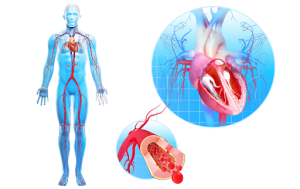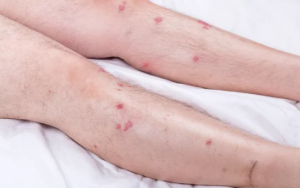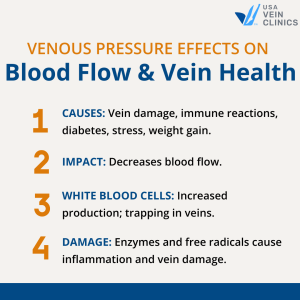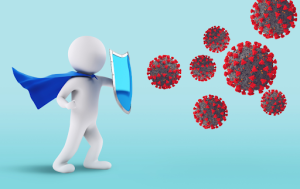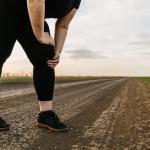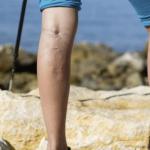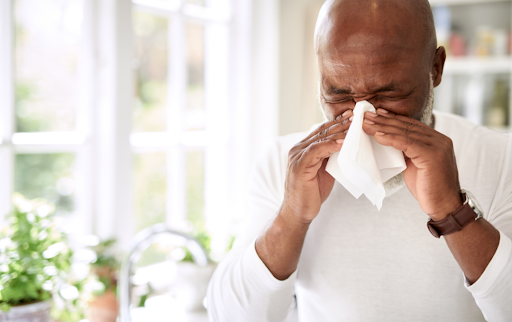
The connection between your veins and your immune system is one of the major reasons to prioritize your vascular health. If your blood vessels are healthy and you have good circulation, it’s easier for your body to defend itself from disease and infections. You’re also less likely to experience the type of inflammation that damages tissues and organs.
Did you know that problems with your vascular health may impact your ability to fight diseases, including common illnesses like respiratory syncytial virus (RSV) and COVID-19?
Tired of being sick or rundown?
Learn more about what you can do to keep your veins healthy — and support your immune system in the process.
Sign up for the Latest News on Vein Health
How Veins Work
Did you know that your body contains thousands of miles of veins that transport about 2,000 gallons of blood daily?
Your veins and arteries work together as part of your circulatory system, powered by your heart as the pumping station. These vessels act as lifelines and deliver everything your tissue and organs need to stay healthy, including oxygen, nutrients, and immune cells — oxygen that helps muscles contract, nutrients that build strong bones, and immune cells that fight off the common cold and other infections.
But, if these veins get clogged or sluggish, the consequences can be serious. Blood clots, varicose veins, and even reduced energy levels can be linked to unhealthy veins. So understanding how your veins work isn’t just about anatomy, it’s crucial for your well-being and a strong immune system.
The bottom line: when you ensure your veins are healthy, you’re also supporting your immune system, heart, lungs, and every other organ.
The Impact Veins Have On Your Overall Health
Your veins play a crucial role in your overall health, and understanding their importance can motivate you to prioritize your well-being. Here are some key ways veins impact your health:
Blood Flow
- Essential delivery: Veins transport oxygen, nutrients, and immune cells to every corner of your body. These vital elements keep your organs and tissues functioning optimally.
- Waste removal: Veins carry away carbon dioxide and toxins, ensuring your body isn’t clogged with harmful substances.
- Blood pressure regulation: Healthy veins maintain proper blood pressure by allowing smooth blood flow. Unhealthy veins can contribute to high blood pressure, increasing the risk of heart disease and stroke.
Immune system
- Veins transport immune cells throughout your body, enabling them to quickly reach invaders and fight off infections and diseases.
- Healthy veins help regulate inflammation, a crucial defense mechanism. Poor vein health can lead to chronic inflammation and various health problems.
Circulation
- Energy levels: Efficient blood flow through healthy veins delivers oxygen to your muscles, improving energy levels and reducing fatigue.
- Wound healing: Veins are crucial in delivering nutrients and removing waste from injured areas, promoting faster healing.
- Overall well-being: Healthy veins contribute to better circulation, which impacts everything from brain function to skin health.
Complications of Unhealthy Veins
- Blood clots: Damaged veins can lead to blood clots, which can travel and cause dangerous conditions like heart attacks and strokes.
- Varicose veins: These swollen, bulging veins can cause pain, discomfort, and skin ulcers.
- Chronic venous insufficiency: This condition occurs when blood doesn’t flow properly through the veins, leading to leg swelling, pain, and skin problems.
A key feature of vein health is the valves. The valves are one-way doors that ensure blood moves in one direction — up. However, when these valves become clogged or damaged, they don’t close properly, causing blood to pool in your leg’s veins.
This problem is called venous insufficiency or vein disease. It is the root cause of varicose veins and vein symptoms such as throbbing pain, restless legs, swelling, and leg heaviness.
As the valves and vein walls become more damaged from the increase in pressure on these blood vessels due to backflow, your cells trigger an inflammatory response, and vein disease can worsen.
Vein disease can cause more serious symptoms like skin rashes and venous ulcers for some people. It also increases your risk for blood clots.
How Does Poor Circulation Impact Your Immune System?
When someone has vein disease, they also have poor circulation. Their vein valves don’t work properly, so blood doesn’t flow through the body optimally. As a result, they become vulnerable to all the downstream effects of a poor-functioning circulatory system. One of the most serious is impaired immune function.
Some substances in your blood help your body defend itself from pathogens, including white blood cells and certain proteins. Poor circulation limits these disease-fighting proteins and cells from reaching areas with an infection or a wound.
That’s why vein disease can lead to leg ulcers. The critical growth factors the blood carries can’t move to the damaged region quickly enough. As a result, it’s difficult for the wound to heal, and there’s a higher risk of infection.
If you have an infection in other areas of your body, such as your lungs, you need many white blood cells to clear out the pathogen. Even your red blood cells play a role in some infections. When a person becomes infected with COVID-19, sepsis, or other types of infections, red blood cells express a protein called toll-like receptor 9 (TLR9). This protein binds with cell-free DNA to try and remove it from the body as quickly as possible.
The bottom line is that without a quick influx of enough disease-fighting cells, the body is more vulnerable to diseases, including common pulmonary infections. That’s why there’s a connection between illnesses like COVID-19, sepsis, and RSV and vascular health.
When you have vein issues and poor circulation, your immune system doesn’t have what it needs to mount an efficient and fast reaction to an invader.
How a Weakened Immune System Impacts Your Veins
Research shows that inflammation caused by trapped white blood cells in the veins — a phenomenon known as leucocyte trapping — might contribute to vein valve damage and the development of varicose veins.
Here’s what happens:
While infections don’t directly cause vein disease, trapped white blood cells linked to certain conditions like chronic venous insufficiency can further damage veins and worsen circulation. This impaired flow weakens your body’s ability to fight infection and heal effectively, creating a potentially negative cycle.
How to Protect Your Vein Health
There is a connection between respiratory infections like COVID-19 and vein health, as well as disease in general, because weakened veins can lead to a weaker immune system.
Having healthier veins can better support your immune system and improve your overall well-being.
So, what can you do to keep your veins healthy?
Eating a high-fiber, nutrient-dense diet, drinking plenty of water, and exercising can help.
It’s also important to see a doctor for a vein check-up if you notice warning signs of varicose veins, a blood clot, or other vein issues. A vein specialist can examine your blood vessels using ultrasound imaging to determine if your veins are damaged. They will also recommend the right vein treatment for you.
At USA Vein Clinics, our doctors specialize in treating vein disease. Our goal is to help people live without painful vein symptoms, and with over 160 locations nationwide, we’ve made it easy to access vein care.
Find a Vein Clinic Location Near You
References:
Grudzińska, Ewa, and Zenon Paweł Czuba. “Immunological aspects of chronic venous disease pathogenesis.” Central-European journal of immunology vol. 39,4 (2014): 525-31. doi:10.5114/ceji.2014.47740
Mrinal Saharay, FRCS. “Leukocyte activity in the microcirculation of the leg in patients with chronic venous disease.” Journal of Vascular Surgery, Volume 26, ISSUE 2, P265-273, August 1997
Penn Medicine News. Penn Medicine Study Finds Red Blood Cells Play Much Larger Role in Immune System Through Discovery of DNA-Binding Capability. October 20, 2021.

